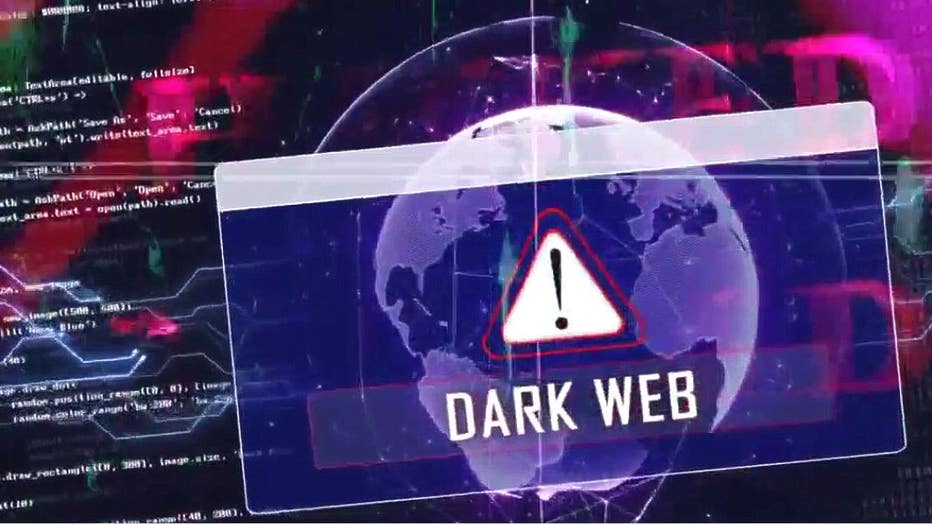The dark web: Expert talks about accessing it, protecting yourself

Expert talks about accessing dark web and protecting yourself
Chances are you've been notified about a data breach involving your private personal information - sometimes that information can end up on the dark web.
FOX 2 (WJBK) - Chances are you've been notified about a data breach involving your private personal information - sometimes that information can end up on the dark web.
While there are legitimate uses for the dark web it's also a playground for organized crime. Your financial information can be bought and sold or sometimes even given away for free.
Even though you did nothing wrong - you can still have your money stolen.
Just the name dark web alone, conjures sinister images of hackers - and there is some truth to all that.
"There is nobody that is off-limits," said David Derigiotis. "It doesn't matter how small you are, What industry you operate in, everyone is at risk. If you are online, you are at risk."
With the help of Derigiotis the chief insurance officer at Embroker, we entered the dark web. While it is not illegal to access it, There are illegal things for sale there.
"The dark web is the smallest part of the internet," he said. "It's built on anonymity and privacy and you need special software to access it."
Derigiotis used Windows' sandbox app and a Tor browser to navigate the dark web without exposure.
FOX 2: "How many sites can you show me, just like this?"
"There are hundreds just like this probably more than that," he said.
We're soon looking at list of companies, businesses big and small, being held for ransom.
"All the ones right now (listed) in red are under attack and you can see there is a clock that is counting down," he said.
They are being told by hackers to either pay up or else.

Cyber Attack Crime
"This company didn't pay so they published and dumped all their information online," Derigiotis said.
Your name, birthdate, credit card information, and think about the last online purchase you made. All that info could be included.
Criminals now have everything they need to steal your identity and your money.
"All the ones you see in green are companies that chose not to pay," he said. "So what they do is a punitive action. They end up dumping all that information online."
Companies have a choice risk exposure for customers and the bad publicity - or pay up.
"Sometimes they pay, actually a lot of times they pay," he said.
Those who don't pay up are punished.
"These sites are for free," Derigiotis said. "It's called double-extortion. Before they deploy the ransomware, they will extract all of the information and hold it over there head."
To avoid all of this, business owners large and small, need to be prepared.
"You have to assume it's going to happen - how can you minimize your damage, how can you prepare ahead of time, so when it does take place you know exactly what to do," he said. "You have the SWAT team that is able to step in and have systems restored, have data restored."
As for the average consumer, the person whose identity is exposed?
"Security is all about layers. make sure you have a unique password that is long and strong," he said.
It comes down to a change in behavior; get in the habit of changing your password often and use two-factor authentication whenever possible.
"This is organized crime and it's a multibillion-dollar criminal enterprise is what it is," Derigiotis said.


